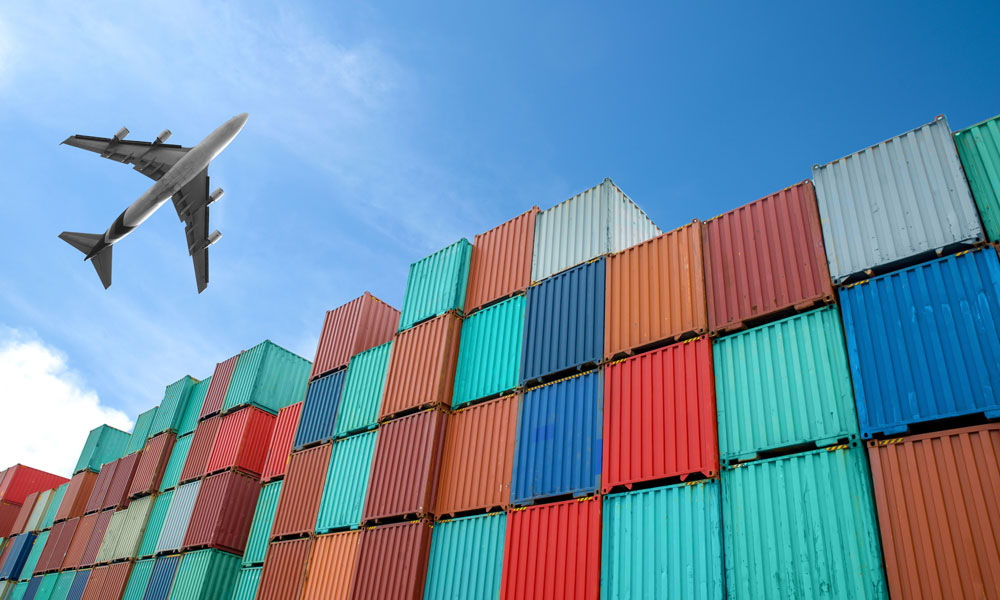
Rowan Kimmins
Nov 12, 2025
Decarbonisation & Scope 3 Emissions: The Next Talent Challenge for UK Supply Chains
The new frontier in UK Supply Chain transformation
As UK organisations race toward net zero, one issue stands out as both urgent and complex: Scope 3 emissions - the indirect greenhouse gas emissions that occur across an organisation’s value chain.
According to KPMG’s Supply Chain Trends 2025, managing Scope 3 emissions is now one of the most significant supply chain challenges worldwide. These pressures are reshaping procurement strategies, supplier relationships, and, crucially, the talent employers need to lead this transformation.
As specialist recruiters in procurement, supply chain, and logistics, we’re seeing this play out first-hand. Businesses are realising that effective decarbonisation doesn’t just depend on systems or software, it depends on people who can turn sustainability targets into commercial outcomes.
Why Scope 3 Emissions are transforming the Supply Chain landscape
1. The majority of emissions sit outside direct control
For most UK businesses, over 70% of emissions come from suppliers, logistics partners, and product lifecycles. Reducing these requires cross-organisational collaboration, not just operational efficiency.
2. New regulations and reporting expectations
From mandatory carbon reporting to public procurement requirements, companies are being asked to disclose their Scope 3 emissions. Investors, regulators, and customers now expect verifiable data on carbon footprints across the full value chain.
3. Balancing sustainability with cost pressures
As the KPMG report highlights, leaders must deliver on ESG goals while managing inflation, cost-to-serve, and resilience. That’s driving demand for professionals who understand both green strategy and commercial reality.
The human side of decarbonisation: A talent transformation
While technology and data are essential, people remain the biggest enabler of sustainable progress. Scope 3 management calls for a new generation of supply chain talent - individuals fluent in procurement, logistics, and sustainability.
(If you’re a candidate you might want to read our related blog “Which Sustainability Skills Are Key to Progress Your Supply Chain Career?” which explores what candidates can do to develop their own ESG capability.)
What employers should look for in Scope 3 talent
1. Commercially minded sustainability experts
Procurement professionals who can connect ESG data to financial performance will drive meaningful progress. Look for individuals who understand lifecycle costing, supplier emissions data, and how to integrate sustainability into tender evaluation.
2. Supplier collaboration and partnership builders
Scope 3 reduction relies on engaging suppliers, not policing them. Candidates who can foster collaboration, set shared goals, and co-develop carbon-reduction strategies are in highest demand.
3. Data-driven decision-makers
As carbon reporting matures, supply chain leaders need team members who can interpret large data sets, manage ESG dashboards, and validate emissions figures. Familiarity with analytics tools or sustainability platforms (like EcoVadis or CDP systems) is an asset.
4. Cross-functional change leaders
Decarbonisation requires influence across procurement, logistics, operations, and finance. The strongest professionals are those who can align different functions behind measurable sustainability KPIs.
5. Future-ready innovators
Look for curiosity, adaptability, and systems thinking. As Scope 3 standards and technology evolve, your team must be agile enough to implement new methods and tools.
How UK employers are building decarbonisation capability
Leading organisations are adapting their workforce strategies to support long-term sustainability goals:
- Integrating ESG accountability into procurement and supply chain job descriptions.
- Upskilling teams on emissions tracking, supplier data management, and circular-economy models.
- Creating hybrid roles such as Carbon Data Analyst, Sustainable Procurement Manager, and Decarbonisation Lead.
- Partnering with specialist recruiters to access talent experienced in both supply chain management and sustainability transformation.
At Cast UK, we’ve seen a significant rise in recruitment for these hybrid positions, a signal that sustainability is no longer an add-on, but a core business capability.
Why this matters for UK Supply Chain transformation
The journey to decarbonisation is reshaping the logistics and supply chain landscape in the UK. It demands new skills, leadership styles, and workforce planning.
For employers, the challenge isn’t simply compliance, it’s about building teams that can use sustainability to:
- Strengthen supply chain resilience
- Improve operational efficiency
- Enhance brand reputation
- Unlock competitive advantage in future tenders
When sustainability is embedded across procurement and logistics teams, Scope 3 becomes not just a reporting requirement, but a strategic growth opportunity.
Scope 3 emissions are redefining how UK businesses think about supply chains, partnerships, and talent. Organisations that invest now - in the right people, processes, and partnerships - will be better equipped to meet net-zero goals and maintain commercial performance in a rapidly changing marketplace.
CAST specialise in recruiting procurement, supply chain, and logistics professionals who can bridge the gap between sustainability ambition and delivery. If your business is planning its next phase of decarbonisation, we can help you find the talent to lead it.


